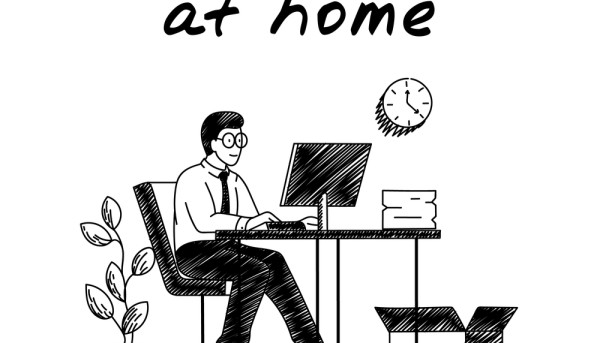Buying a Home - Fixed Rates Vs Adjustable Rate Mortgages

Whether you are buying a new home or refinancing your current mortgage, you will want to take the time to learn more about the advantages and disadvantages of both Fixed Rates and Adjustable Rate Mortgages. By understanding this information, you will be able to make an informed decision when it comes to your next purchase.
Fixed-rate mortgages
Choosing between fixed-rate mortgages and adjustable-rate mortgages (ARMs) when buying a home is an important decision. While both types of mortgages offer different benefits, you may find that one type is a better fit for your personal financial situation. The key to deciding between these two types of mortgages is understanding their pros and cons.
Fixed-rate mortgages offer predictability, which can be especially appealing for homebuyers with a long-term plan to stay in their home. If you have a fixed-rate loan, you can always refinance when interest rates go down. Fixed-rate loans may also allow you to pay off your mortgage quicker, which can save you thousands of dollars over the life of your loan.
Adjustable-rate mortgages (ARMs) differ from fixed-rate mortgages in that they adjust periodically as the market interest rates fluctuate. The initial interest rate of an ARM may be lower than that of a fixed-rate mortgage, but the rate may increase during the remaining years of the loan. ARMs also have a cap that limits the rate increase to a specific amount over the life of the loan.
Fixed-rate mortgages can be more affordable for many homebuyers, but they also offer a higher monthly payment. This may be a problem if you have a tight budget. ARMs also come with greater risk. When interest rates go up, you may be forced to refinance, which may have fees and prepayment penalties.
While ARMs offer the ability to pay off your mortgage faster, they also come with greater risk. You may be unable to afford the mortgage if you haven't saved a substantial down payment. In addition, you may have to pay a higher monthly payment because the interest rate is slightly higher. ARMs also don't have the same amount of flexibility as a fixed-rate mortgage.
In addition, adjustable-rate mortgages may not be available on all types of mortgages. If you are considering an ARM, make sure you work with a knowledgeable mortgage professional. You can also interview an advisor at no cost. You may also want to consult with a tax advisor to find out how your mortgage payment will affect your taxes.
Fixed-rate mortgages are usually available as a 15-year loan or 30-year loan. They are also available in lower down payment mortgages. Typically, a 15-year mortgage has a lower interest rate than a 30-year mortgage, which may make them more affordable for homebuyers who need to pay off their mortgage quickly.
ARMs are a good choice for homebuyers who are looking for a low initial interest rate. They also have benefits, such as flexibility. However, the risk of an ARM is greater than that of a fixed-rate mortgage. If you don't have the cash to make a down payment, or you have a low tolerance for risk, you may want to look at a fixed-rate mortgage instead.
Lower interest rates during the introductory period
Buying a home with an adjustable rate mortgage (ARM) can offer many benefits to homebuyers, including lower interest rates during the introductory period. In fact, you can save thousands of dollars on your monthly mortgage payments over the life of your loan. But if you're considering an ARM, you should make sure you understand what it's all about.
An ARM has many different parts, but one of the most important is the initial rate. This is often called the "start rate" or the "teaser rate" and is usually significantly lower than the rates on conventional fixed-rate loans. The rate may remain consistent for a certain period of time, but it's not uncommon for it to change in a matter of months.
During the initial rate period, the lender is not permitted to change your interest rate more than once a year, or at most once every six months. This is because it helps reduce the lender's risk. While the interest rates are lower, it's important to remember that the lender has the right to increase your rate once it's flipped into an adjustable rate.
The rate that's most likely to change is called the "fully-indexed rate" and is set by a variety of factors. For instance, your lender's standard margin and broader real estate market conditions could help to determine what rate is best for you. Another important thing to keep in mind is that you can refinance before you are eligible for a rate change. If you can't afford to make the jump, you could find yourself in a bind.
The "initial fixed rate period" is a short-term period in which the interest rate on your loan is set for three to ten years. This introductory period can be shorter if you're considering moving in the near future. It's also a good idea to use an ARM if you're planning to sell your home in the near future. A higher interest rate can result in negative amortization.
The "initial fixed rate phase" can last between three and ten years, and the "initial adjustable rate phase" begins after the initial fixed rate phase ends. The initial fixed rate phase is often referred to as the "golden era" because it's when rates are lowest, and the lender has a lot less risk on the loan.
The "initial fixed rate lasted for ten years" ARM is also a great choice for homebuyers, especially if you're planning to sell your house in the next few years. However, you might be tempted to refinance after the initial fixed rate phase, or you may just want to keep your loan fixed for a longer period of time. However, it's important to remember that interest rates are always moving and can change based on market conditions.











